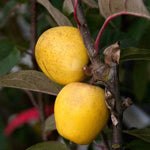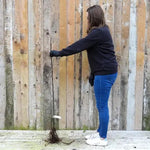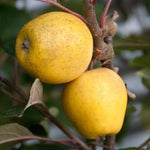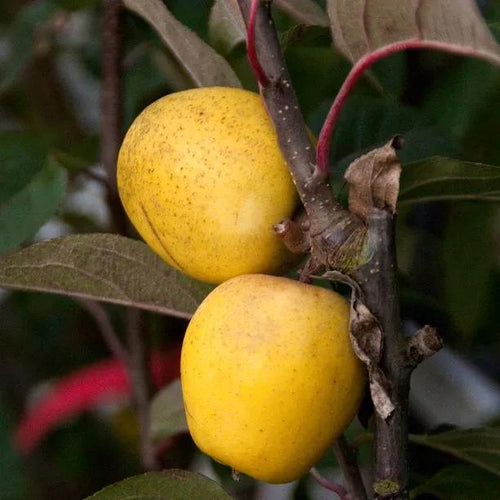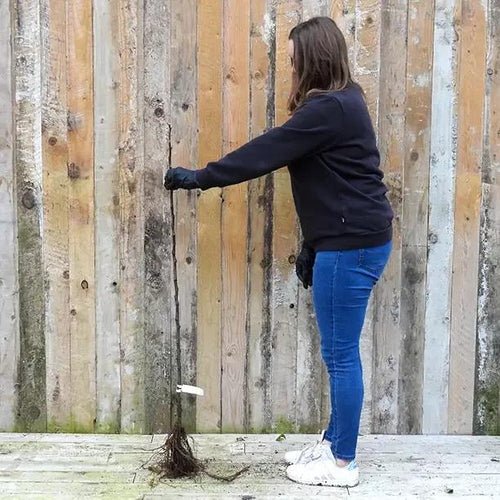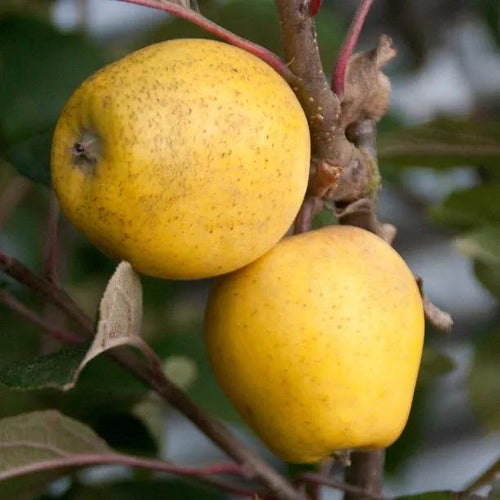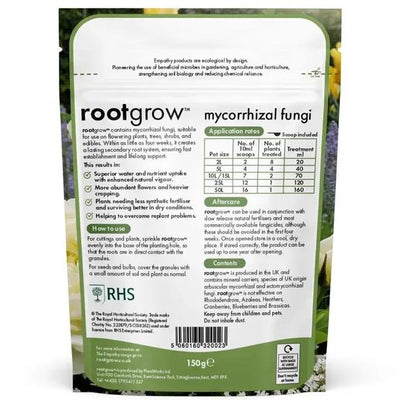Pitmaston Pineapple Apple Trees
The Pitmaston Pineapple - sometimes called Radcliffes NonPareil - is an exceptional apple with a powerful nutty flavour, honey sweet yet also sharp.
The name really refers to its warm yellow-russet colour and shape more than the flavour, which has at best a mild hint and aroma of pineapple - reminiscent, let's say.
Pitmaston Pineapples are very small, about 5cm across, and the trees tend to crop biennially, laden with fruit in alternate years, so they're rarely grown commercially, but make an outstanding addition to an orchard with children around, and anyway your neighbours won't be able to get their hands on them anywhere else!
Whilst not really a cooking apple, their flavour special enough that you should experiment with them in pies and other desserts.
The trees have an upright habit and are fairly vigorous, their flowers are also large and well structured.
The fruit are ready to eat in mid-October
Browse our range of apple trees, or all our fruit trees.
Read our guide to buying apples.
Delivery season: Bareroot plants are delivered in late Autumn to Spring, about November-March inclusive. Pot grown plants, year round.
Features
- Eating: Hint of pineapple flavour
- AKA Radcliffes NonPareil
- Spur bearer (good for cordons & espaliers)
- Self sterile.
- Pollinator
- Pollination Group D.
- Harvesting: October
- Scab resistant
- Stores 1 - 2 months.
Growing Pitmaston Pineapples
Apples like rich, well drained soil, and will thrive on clay in locations that do not get waterlogged in winter.
A full day of sun and shelter from the wind is ideal.
The fruit need regular thinning.
Disease Notes:
Scab resistant.
Rootstocks:
We use MM106 for Pitmaston Pineapple, the UK standard for medium-sized trees, ideal for gardeners. It gives a half-standard about 4m tall, and a bush about 3m.
MM106 maidens are suitable for cordons and espaliers.
Pollination Partners
Your trees are self sterile and their flowers must be pollinated to make fruit.
Pitmaston Pineapple is in Pollination Group D, which cross-pollinates with other apple trees in Groups C, D and E.
Use our Fruit Pollination Checker to quickly find pollination partners, or Apple Tree Pollination Guide to learn more.








 Secure, One-Tap Checkout
Secure, One-Tap Checkout
 Hand Picked, Delivered to Your Door!
Hand Picked, Delivered to Your Door! 1 Year Bareroot Guarantee
1 Year Bareroot Guarantee